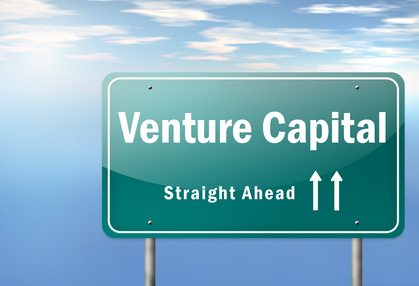By Peter Delevett
San Jose Mercury News
Is too much money a bad thing?
Not for you or me, perhaps. But in tech circles, there’s increasing concern about a flood of venture capital money that could artificially boost the value of startups — and then lead to a dot-com style crash.
The debate recently gathered steam when tiny Snapchat turned down multibillion-dollar acquisition offers. Now the checks for later-stage companies are getting bigger too, as home-run seeking venture capitalists court more tech entrepreneurs — some of whom actually find themselves turning away millions of dollars.
“Startups are raising twice what they used to, and valuations are notably hot,” said Craig Hanson, a venture investor with Next World Capital in San Francisco.
Hanson explained why that’s a concern: A huge valuation can make it tough for a company to pull off an initial public offering or merger deal that will produce enough of a return to reward its backers — and keep the investment pipeline circulating. In other words, too much money now makes it harder for the VC firms and entrepreneurs to strike it rich later.
Raising too much money also can lead to investors pressuring a CEO to grow faster than the business can support.
Nonetheless, investment rounds keep swelling in size: While a $100 million venture round used to raise eyebrows, in recent months such deals have become almost commonplace.
Venture capital data analysis firm CB Insights says that so far this year, 45 private tech companies nationwide have landed funding rounds topping that heady level — a 50 percent jump from the number in all of 2012, and a 105 percent increase from 2010.
This year’s tally even beats 2011, which thanks to investor fervor for social media saw massive pre-IPO deals for Facebook, Groupon and Zynga.
Hanson, whose firm funds mature startups that need big infusions of capital to grow, said lately he’s tried to talk entrepreneurs out of signing outsize term sheets from competing venture shops. Many techies, especially first-timers, tend to view big funding rounds as status symbols, Hanson and others say, but they also can force an entrepreneur to hand over a bigger share of his company than he might like.
Tech entrepreneur Tony Jamous, who is raising money for his startup, said he’s been fending off eager VCs.
“There’s so much money right now in the market that it’s my challenge to actually keep it a small round,” said Jamous, chief executive of a San Francisco outfit called Nexmo that helps popular mobile messaging apps such as Viber, Line and KakaoTalk gain access to telecom networks.
Jamous is looking to close a funding round between $10 million and $15 million, a modest hike from the $3 million Nexmo notched early this year. “Raising too much money can be a negative for a company,” he said.
CB Insights chief Anand Sanwal said most of the recent uptick in deal size is being driven not by traditional Sand Hill Road venture firms but by corporate venture capital operations, which in the past couple of years have returned to tech investing with a vengeance.
Also pumping up the volume are big private equity firms such as Tiger Global Management, which in the past year has invested tens of millions of dollars into valley startups including SurveyMonkey, Pure Storage, Nextdoor, Eventbrite and One Kings Lane.
Snapchat, meanwhile, said this week it has raised $50 million in fresh capital from Coatue Management, a hedge fund with offices in New York and Menlo Park.
“There’s no doubt it’s pretty hot out there,” said Robert Hohman, CEO of a Sausalito startup called Glassdoor — and another recipient of Tiger Global’s largesse. The New York firm this month led a $50 million funding round that more than doubled the total Glassdoor had raised since its founding six years ago.
Hohman said the influx of venture dollars into the market has led to “massive increases in salary” that have made it tough for startups without big funding rounds to recruit and retain engineers. Still, he’s not quite ready to invoke the B word: Having helped launch Expedia in the dot-com days, he calls this era “palpably different, because there are real businesses under some of these valuations.”
Sanwal, whose clients include venture firms, investment banks and corporate merger-and-acquisition groups, likewise argues that it’s too soon to say if the trend portends doom.
And one executive whose company recently landed an eye-popping deal said it’s not just smart to take the big money, but often necessary for growth.
“Given the state of the markets, it made sense,” said Dwight Merriman, co-founder of a New York database startup called MongoDB. In October, it hauled in $150 million from T. Rowe Price, San Francisco cloud computing heavyweight Salesforce.com and a number of valley VC firms that had previously backed it.
Calling database software a $30 billion market, Merriman said it “takes capital” to build a contender. His firm’s head count, which includes a large office in Palo Alto, has more than doubled to 370 in the past year.
Merriman is another dot-com survivor, having cofounded online advertising pioneer DoubleClick and taken it public. Compared to then, he said, companies that aren’t ready to go public can wait until they are on more solid footing, thanks to today’s ready availability of private funding.
Sanwal said fears of a bubble may be exaggerated because, thus far, Wall Street largely has resisted a 1990s-style frenzy for tech stocks, notwithstanding a handful of hot debuts like Twitter’s.
“For this whole thing to come crumbling down, I think the public markets have to be involved,” he said. “Right now, if one of these companies fails, it’s not going to have implications for the whole ecosystem.”
On the other hand, his firm recently compiled a list of 25 private companies reportedly valued at more than $1 billion by their venture investors. Since 2004, Sanwal said, only 45 venture-backed companies have gone public or been acquired in billion-dollar deals — which means it’s likely some of those on his list of 25 won’t live up to their investors’ hopes.
“Maybe these are different times,” he said. “Or maybe we’re all just drinking the Kool-Aid.”
Silicon Valley startups that have recently closed $100 million or more funding rounds include:
SurveyMonkey: $450 million in January
Bloom Energy: $122 million in May
Uber: $258 million in August
Pure Storage: $150 million in August
Palantir Technologies: $197 million in September
A10 Networks: $115 million in October
Pinterest: $225 million in October
Box: $100 million in December
Source: Staff research; PricewaterhouseCoopers

















































































































































































































































































































































































